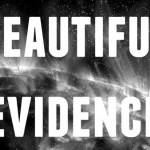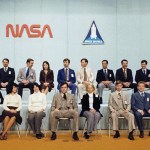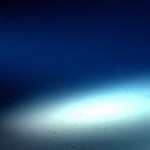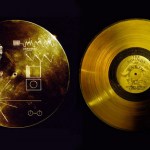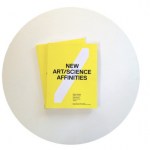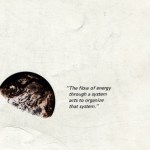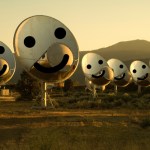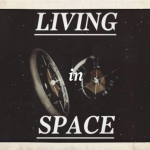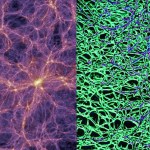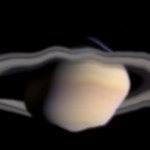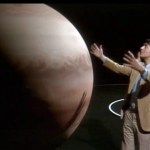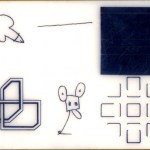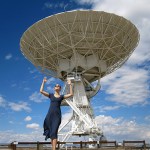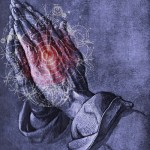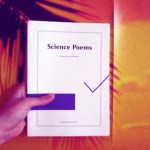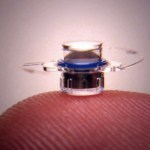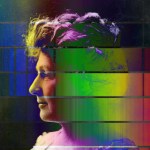Human
...you receive comments from reviewers stating that your "research is interesting, but what does it have to do with people?" Clearly these reviewers have not been reading this blog or they would know that many of the findings in animals have the potential to benefit humans although some findings really are destined to only benefit the animals they are discovered in...and that is okay. Hey, veterinarians need to make a living too.
To scientists, "experimental" is a technical word, one with a precise meaning: that which relates to a procedure of methodical trial and error, to a systematic test for determining the nature of reality. I got in trouble on this blog once, with commenters, for using the word "experimental" too flippantly.
But artists experiment too, of course. Their method of inquiry is different, free from the rigidity that characterizes the scientific method. Artistic experiments are designed to be singular; they aren't supposed to be repeated. They have no control variables. Often, even the hypothesis…
"Each generation goes further than the generation preceding it because it stands on the shoulders of that generation. You will have opportunities beyond anything we've ever known." -Ronald Reagan
Earlier today, Sally Ride, the first American woman ever to fly in outer space, passed away at the age of 61 from pancreatic cancer. To many different people, her life, her achievements, and her death means a great diversity of things. To anyone with a love of outer space, human exploration, and achieving your dreams, her story will likely resonate with you, too. I'd like to share with you what are,…
Is poetry a driving force of Oceanography?
Read Rimbaud!
- Phillipe Diolé
I've written many times, although not recently, about the ocean.
When I first began Universe in 2005, it was practically a ship's log: meandering pieces on narwhal tusks, the accidental poetics of my hero, Rachel Carson, and adolescent screeds on the perils of the Mariana trench. At some point in my career, I ported my energies outward to the cosmos, reasoning, as the ancient alchemists did, that "As Above, So Below."
The movement from the deep to the distant, from sea to space, seemed like a sensible evolution. I saw…
In 1977, NASA sent a pair of unmanned probes named Voyager 1 and Voyager 2 into space. Among the infrared spectrometers and radio receivers included on each probe were identical copies of the same non-scientific object: the Voyager Golden Record.
Sheathed in a protective aluminum jacket, the Record is a 12-inch gold-plated copper disk containing sounds and images chosen to portray the diversity of life on Earth: bird calls, whale songs, the sounds of surf, wind, and thunder, music from human cultures, and some 55 greetings in a range of languages, alive and dead. Like lonely time capsules,…
"I read this book. It's pretty good even if they made it in a week. Worth the fifty bucks, easy."
Bruce Sterling
In February of this year, I had the distinct pleasure of being invited to the STUDIO for Creative Inquiry, a zygote of an institution nestled between departments at Carnegie Mellon University, to work on a strange collaborative project called a "booksprint." A booksprint, I discovered, is a fairly new practice, derived from the world of open-source software "codesprints." In this version, a group of writers work exhaustively for a week on a shared project, which is then made into…
A couple of months ago, I wrote a piece here on Universe exploring the ideas of the futurist Gerard K. O'Neill, who designed far-out but ultimately quite pragmatic environments for human habitation in space in the mid-1970s. In that article, I touched briefly on the notion of the "Overview Effect," a phrase coined by the writer Frank White to describe the profound insight -- characterized by a sudden awareness of life's interconnectedness and the frailty of our planet -- experienced by astronauts gazing down at the Earth from space.
Frank White is the author of The Overview Effect: Space…
As you have undoubtedly heard from sources more overtly journalistic than this one, SETI is back online!
After federal and state financial cutbacks forced the institute's shiny new Allen Telescope Array (ATA) into indefinite hibernation earlier this year, cosmically-minded geeks all over the globe donated money in droves, bringing the search for extraterrestrial life back from oblivion. Over $200,000 in donations from thousands of fans -- including Contact's own Jodie Foster, science-fiction writer Larry Niven, and Apollo 8 Astronaut Bill Anders -- will get science operations up and running…
In the mid-1970s, the U.S. State Department prohibited the internal use of the term "space colony," due to the global bad reputation of colonialism. Instead, the government opted for "space settlement." Of course, as Stewart Brand pointed out at the time, the last thing you do in space is settle. Quite the opposite! Making the decision to explore space -- and live there -- is just about the most unsettled act a human can commit.
There have always been two camps on this issue. First, the unsettled, like Brand: the science-fiction aficionados, capitalists, rocketry geeks, macrocosmic thinkers,…
Mushrooms and their mycelium are quiet allies that are essential for our healthy existence. They are enigmatic, have a sense of humor, and socially as well as spiritually, bond together all that admire them. They have much to teach us.
-Paul Stamets
If the ego is not regularly and repeatedly dissolved in the unbounded hyperspace of the Transcendent Other, there will always be slow drift away from the sense of self a part of nature's larger whole.
-Terrence McKenna
A few weeks ago, I was sitting at my kitchen table, having coffee, when I suddenly noticed a new development in my bonsai…
"All things move and nothing remains still" -- Heraclitus
The history of astronomy can be read as a story of better and better vision. Over the centuries, we have supplemented our vision with technology that allows us to see further and more clearly; while Ancient astronomers, who relied only on their naked eyes to perceive the universe, managed to make star catalogues and predict comets, Galileo, pressing his to a telescope, saw all the way to the moons of Jupiter.
Optical telescopes and the human eye are fundamentally limited; early astronomers were forced to gaze into telescopes for…
Ed: This is an essay I wrote for my friends at the World Science Festival, riffing on the central themes of this years' event. If you prefer, you can also read this piece on the World Science Festival site. And, if you're in New York between the first and fifth of June, you could do much worse than popping into the Festival and getting a load of panel discussions like The Dark Side of the Universe, or Science & Story: The Art of Communicating Science Across All Media.
Science communication is difficult.
It can be crippled by the complexity of its own subject matter. It can be steeped in…
The moon is a rock.
But it's also Selene, Artemis, Diana, Isis, the lunar deities; an eldritch clock by which we measure our growth and fertility; home of an old man in the West and a rabbit in the East; the site of countless imaginary voyages; a long-believed trigger of lunacy (luna...see?). It's another world, close enough to our to peer down at us; to it, we compose sonatas. It can be blue, made of cheese, a harvest moon; we've long fantasized about its dark side, perhaps dotted with black monoliths or inhabited by flying men.
The moon is a totem of great importance in all religions…
This is the first in a series of posts about art, the moon, and art on the moon. You would think this would be a fairly limited subject, but...
Art on the moon has been happening for a long time.
In 1969, a coterie of American contemporary artists devised a plan to put an art museum on the Moon. When NASA's official channels proved too dauntingly bureaucratic, Andy Warhol, Robert Rauschenberg, David Novros, Forrest "Frosty" Myers, Claes Oldenburg, and John Chamberlain weren't deterred. Instead, they managed to sneak their "museum" -- in reality a minuscule enamel wafer inscribed with six…
A few months ago, I attended Cyborg Camp in my hometown of Portland, Oregon. Cyborg Camp is an "unconference," basically a room full of cyberpunks, mega-nerds, and aspirational coders that gather in an office building to talk about the "future of the relationship between humans and technology." This event deserves a separate entry, but for now I'd like to recall a particularly evocative thing: that the most heartbreaking thing I saw at Cyborg Camp was an adult man hopelessly tangled in a web of cables.
It was his own off-the-shelf wearable computing system, a gordian thing connecting his…
The author, dishing.
To get to the National Radio Telescope Observatory, you have to be committed.
Well, first, you have to be in New Mexico -- about an hour's drive south of Albuquerque, in the plains of San Augustin, to be precise, a Pleistocene lakebed bordered by the northern end of the Chihuahuan Desert and dotted with arid shrubs. Despite being some 6,970 feet above sea level, it feels like the basement of the world, wide and flat and under the massive Southwestern sky. Driving to the Observatory, the home of the famous "Very Large Array" of radio telescopes, is an exercise in…
Let's talk about the God Particle.
It strikes me that people refer to the Higgs boson as the "God particle" in the same way some call the iPhone the "Jesus phone": with an almost pointed disregard for what such a prefix actually means. Considering the intensity of the culture wars, the popularity of the moniker is baffling. Is this about contextualizing the abstraction (and grandeur) of particle physics in a way "regular" people can understand? Does this represent a humanist concession to the religious? If so, can religious culture really be swayed by such a transparent ploy -- y'know, it…
Earlier this year, I received a charming email from a pair of Helsinki-based artists and designers who work under the name of OK DO. OK DO is a socially-minded design think tank and online publication; they dug Universe and wanted to know if I'd contribute to a new publication and exhibition project they were working on. The project, Science Poems, was perfectly up my alley: a variety of articles and work loosely structured around the "poetry and multi-sensorial aesthetics of natural sciences rather than their functionality and logic."
For the occasion, I wrote a short piece about the…
My grandmother suffered in her old age from macular degeneration, a common age-related eye disease that causes the center of your visual field (the macula) to gradually fritz out. As it affected her more and more, the font size in her emails ballooned to cartoonish sizes. She began walking with a cane, and needed a fancy electronic doo-dad to tell her when her cup of tea was full. By the end of her life, she was totally blind.
Watching my grandmother wink out from the world of seeing was tragic; the knowledge of macular degeneration's heredity terrifying. Relatives of those who have…
Readers, help me sort out an egregious detail of astronomical lore.
The most common method of classifying stars -- Harvard Spectral Classification -- was thought up by one of the most famous female astronomers of all time, Annie Jump Cannon. Adapted from a cumbersome older method which sorted stars into 22 alphabetical categories of observable hydrogen in their spectra, the Cannon method orders stars from hottest to coldest. This, despite being functional and elegant, left her (and us) with an unpronounceable acronym: OBAFGKM. With the recent addition of two colder categories of stars, the…
